Opinion
Issues of academic freedom and forced ‘voluntary’ retirement of Prof. Sasanka Perera: A call for reflection and dialogue
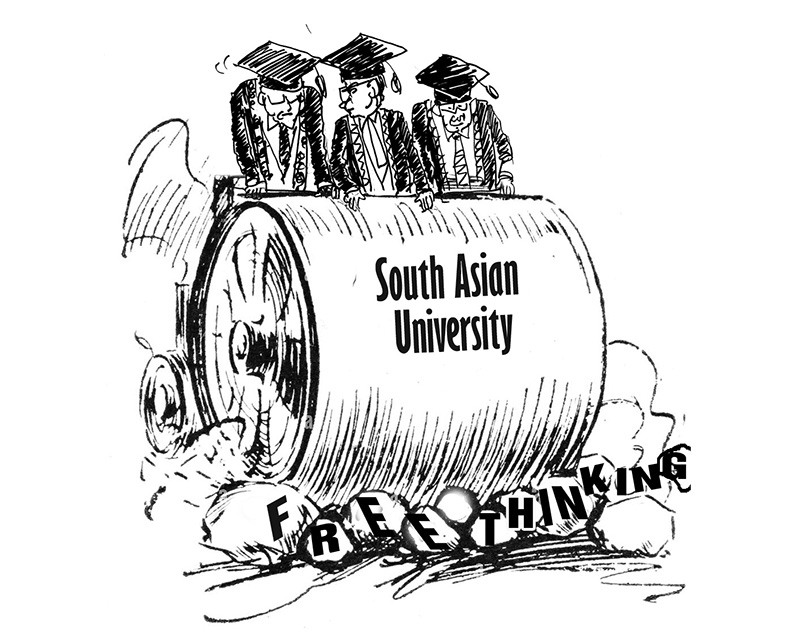
Prof. K.K. Aggarwal President
South Asian University New Delhi
Mr Ranil Wickremasinghe President of Sri Lanka President’s Office Colombo
Mr. Sagala Ratnayaka
Chief of Staff to the President of Sri Lanka President’s Office
Colombo
Mr. Saman Ekanayake
Secretary/President of Sri Lanka President’s Office
Colombo
Mr. Ali Sabry
Minister of Foreign Affairs Government of Sri LankaMr. Tharaka Balasuriya
State Minister of Foreign Affairs Government of Sri Lanka Ms. Kshenuka Senewiratne
High Commissioner of Sri Lanka to India
Ms. Aruni Wijewardane,
Secretary/Foreign Affairs Ministry of Foreign Affairs Government of Sri Lanka
Mr Niluka Kandurugamuwa
Director General SAARC Ministry of Foreign Affairs Government of Sri Lanka
Dr. S. Jaishankar
External Affairs Minister Government of India
Mr. Vikram Misri
Foreign Secretary, Ministry of External Affairs Government of India
Mr. Jaideep Mazumdar
Secretary [East] Ministry of External Affairs Government of India
Mr. CSR Ram
Joint Secretary [BIMSTEC & SAARC] Ministry of External Affairs Government of India
Mr. Puneet Agrawal
Additional Secretary/ Indian Ocean Region Ministry of External Affairs
Government of India Mr. Santosh Jha High Commissioner
High Commission of India Colombo
Mr Md. Golam Sarwar
Secretary General/SAARC SAARC Secretariat Kathmandu
Ms Irosha Cooray
Director/ Education, Security and Culture SAARC Secretariat
Kathmandu
We, the alumni of the South Asian University (SAU), are extremely appalled by the recent treatment meted out to Prof. Sasanka Perera by the University. Prof. Perera is one of the founding faculty members of this institution and has been crucial to not just the evolution of the Department of Sociology but also to the blossoming of the university in varied roles as professor, Head of the Department of Sociology, Dean of Social Sciences and Vice President of this ‘international’ University over thirteen years of dedicated efforts.
The systemic institutional harassment that Professor Perera was made to undergo since April this year initially launched by the Dean of Social Sciences Sanjay Chaturvedi and the Head of Sociology Dev Nath Pathak, is however not surprising given the recent ongoing chain of events regarding the suspension of four core faculty members and the witch-hunt of students who dared to speak out for their basic rights as an intrinsic part of life and learning in what is supposed to be an international university. In these last few years, it is, perhaps, a matter of routine to institutionally hound and effectively extinguish any notion of free speech and liberty in this institution of higher learning. The notoriety that SAU has brought upon itself globally in the last few years is hard to retreat from.
For alumni of SAU working in leading universities in and outside South Asia and the larger international academic world, the punitive and arbitrary measures by the administration against its faculty and students for merely speaking out for their minimum rights — and in this case for solely supervising the writing of a PhD research proposal — is indeed shocking and unfathomable! No matter what the University may claim to wash its hands off the egregious situation it has created, it is evident that Prof. Perera was left with no option but to voluntarily retire in the horrific circumstances to preserve his dignity and integrity, characteristics appallingly lacking at the university and in its leadership. But with the wrongful ouster of a founding faculty and, not to mention, an internationally acclaimed scholar in the field of Social Sciences, the University has effectively plunged to new depths of academic degeneration and international embarrassment.
This recent issue of sending a show-cause notice to a PhD candidate and setting up an inquiry committee to investigate his supervisor merely for citing a world-renowned intellectual on a research topic that is solely within the bounds of academic history and present practices of research across the world are tragically farcical operations. The dissertation proposal, which cites linguist Noam Chomsky’s view, argues that Narendra Modi represents
a ‘radical Hindutva tradition’—a perspective that aligns with the views of many progressive thinkers. Chomsky himself has critiqued the Modi administration of undermining Indian secular democracy and promoting a discriminatory ideology. Adding to the complexity, the student in question is a Muslim from Kashmir. The situation, where a student is being questioned for citing a scholar and a professor is forced into retirement for supervising the student, ironically seems to validate Chomsky’s critique by indeed demonstrating a grave threat to Indian secular democracy and a violation of academic freedom.
Adding to the irony, Professor Sasanka Perera is one of the few international faculty members at South Asian University that touts itself as an ‘international’ university, and the treatment meted out to him underscores the rapid erosion of the institution’s global and cosmopolitan character and its reinvention as a North Indian institution of ill-repute. While universities have historically emerged within the dominant socio-political and economic frameworks of their times, the more established and reputed ones have progressively transformed into bastions of democratic values and critical inquiry. Today, they are expected to champion the principles of academic freedom and foster environments where diverse perspectives are engaged with and respected. Sadly, rather than serving as a beacon of critical thinking in the current socio-political climate, South Asian University has become a mere apparatus of the Indian State. Its South Asian sensibility and ownership by the South Asian Association for Regional Cooperation (SAARC), which established it, is irrevocably lost. This is a new low in the history of this University’s enterprise of harassment of its faculty. The future of authentic, serious and unbiased research in SAU is at stake if the minimum good practices of research and academic writing cannot be upheld within a university that claims global repute.
What is worse is that the institutional harassment of Prof Perera did not come from external sources. As clearly authenticated by documents of the inquiry process, it came from the Head of Sociology and the Dean of Social Sciences augmented by the deafening silence of the faculty members of the Department of Sociology, other Social Science fields in the university and more generally, across the university. It must also be asked why the two other faculty members who were part of the PhD candidate’s Research Committee and the Academic Committee of the Department of Sociology, which cleared the proposal, were not subject to the inquiry and only Prof. Perera was singled out. Is it because he is non-Indian? All this begs the question: what has happened to the social sciences at SAU and what has become of their practitioners’ sense of ‘doing social science’ and the ethics this involves? With this kind of silence and choreographed timidity in the face of injustice displayed by the great majority of faculty members in the university, one cannot envisage SAU ascending to the heights its pioneers, including Prof Perera, initially envisaged and worked towards.
The exit of Professor Perera is not just a colossal loss for the present students of Sociology at SAU, but also marks the end of honing young and budding minds in the future. Apart from his extensive scholarship, he was a cherished teacher in the classroom who encouraged
critical, reflective and analytical thinking — a highly valuable skill set for knowledge production in social sciences. Professor Perera has been a North Star for many students who have gone on to pursue PhD and research in some of the top international universities. Many of us could pursue a doctoral programme in the top 100 Universities of the world due to his motivation and guidance. His timely and always unstinted and unwavering support for students in their time of need (many times even financial needs) attests to his magnanimity and altruism, a rare quality at SAU.
This entire episode also opens up a series of other crucial questions. That is, what have the SAARC Secretariat, the Secretary-General of SAARC, the SAU Governing Board and the Government of Sri Lanka done to ensure academic freedom and impartiality at the university while safeguarding the interests of a Lankan citizen who does not have access to courts of law in India? Moreover, what has the Indian Government done in this situation which championed the appointment of the present President under whose watch the current episode unfurled, hiding behind the protection the Indian government has gifted to SAU in the form of rights of immunity which has so far allowed SAU to engage in these kinds of unprofessional and unethical activities relentlessly.
All this is to say that the prolonged institutional harassment faced by Professor Perera that led to his early and unplanned retirement is a deep blemish on the academic integrity, ethics and authenticity of knowledge production in a university that claims to be of international standing. Hegemonic geopolitics and extreme pettiness in positions of leadership and power in the university must stop negatively influencing academic practices if SAU genuinely aspires to reach the potential that was envisioned in its creation. As of now, SAU is nose diving into the void of intellectual censorship and academic captivity, effectively taking a toll on its fee-paying students and their futures.
Concerned Alumni of South Asian University
Anushka Kahandagamage
2017-2020 Sri Lankan Sociology (Mphil/PhD) Doctoral Candidate, School of Social Sciences, University of Otago.
Magna Mohapatra
2020, 2022 India Sociology (MA), Sociology (MPhil) Doctoral student, University of Wisconsin-Madison
Sakuna M Gamage
2019 Sri Lankan International Relations (MA) Independent Reseacher & Journalist
Zunayed Ahmed Ehsan 2020 Bangladesh Sociology (MA) Doctoral Student, University of Wisconsin-Madison
Sukanya Maity
2023 India Sociology (MA)
Vishal Singh Raghuvanshi
2017 India Sociology (MA) Working at TR Abir Mazumder 2015 India Sociology, PhD Visiting Faculty, NLSIU, Bangalore
Kaushalya Kumarasinghe
2016 Sri Lanka Sociology, PhD Visiting Academic, Faculty of Graduate Studies, University of Colombo
Buddha Prakash Dhamma Piya Asoka
2021 India Sociology, MA Doctoral Student, Department of Anthropology, CUNY Graduate Center
Kathirtharsini Parameswaran
2023 Sri Lanka LLM
Mst Sabina Tabasum
2023 Bangladesh Sociology, MA Research Associate, Dnet- Development Research Network
Keshav Sawarn
2023 India Sociology, MA Junior Research Fellow, Indian Statistical Institute
Prabudh Singh
2017 India Sociology, MA
Yasangi Handunge
2024 Sri Lanka LLM
Aishwarya Ahmed
2022 Bangladesh Sociology, MA Doctoral Student, Oklahoma State University
Sivaselwam Arulnesan
2022 Sri Lanka MA in International relations Doctoral Student, Christ University, India
Keerthika Suntharalingam
2023 Sri Lanka MA in Sociology Visiting Lecturer, The Open University of Sri Lanka.
Aditya Kumar Pandey
2024 India MA in Sociology Doctoral Student, Shiv Nadar University
Rajashree Chowdhury
2018 India MA in Sociology Doctoral Student, Department of Sociology, Delhi School of Economics
Sridhar Krishnan
2018, 2024 India MA & PhD. International Relations Writing Tutor, Centre for Writing and Communication, Ashoka University.
Pranav Menon
2019 India LLM Doctoral Student, University of Minnesota, Twin Cities
Amrita Sachdev
2016 India Sociology, MA Screenwriter, Mumbai
Kalyan Kumar K
2016 India Sociology, MA Research Fellow, Westminster Business School, London
Jyothika Rimal
2016 India Sociology, MA Ngo, Nepal
Bhimraj M
2019 India LLM MPhil (Law) Student, University of Oxford
Rachna
2022 India LLM Litigation
Swapnil Tiwari
2019 India LLM Assistant Registrar, Customs Excise and Service Tax Appellate Tribunal
Vijayan M
2018 India LLM Asst.Professor Govt.Law College Calicut, Kerala
Nishit Sharma
2022 India Sociology, MA Doctoral Student at University of Nevada Las Vegas
Nazi Karim
2018 Afghanistan MA(Sociology) Phd student at Victoria University of Wellington
Shyamjith
2022 India MA in Sociology Project Fellow, National Institute of Rural Development
Violina Barman
2020 India Sociology, MA Research Associate, CSDD India
Namrata Sedhain
2018 Nepal LLM Officer, Supreme Court of Nepal
Md. Sharifur Rahman
2020 Bangladesh LLM Senior Officer, Zubion Development Solutions Limited
Shashi Kumar
2020 India IR
Haaris Moosa
2020 India LLM Advocate, Kochi
Anukuvi Thavarasa
2020 Sri Lanka Sociology, MA Researcher at the Central European University, Vienna
Tuisha Sircar
2019 India MA Sociology Doctoral Student, IIT Bombay, ADCPS
Chamika Wijesuriya
2020 Sri Lanka MA International Relations Independent Researcher
Bonna chakraborti
2024 Bangladesh Sociology Ma
Ahana Chakrabarti
2018 India MA Sociology Doctoral Student, CSSSC
Sheikh Raisul Islam
2018 Bangladesh LLM Lead Specialist, Trade, BIMSTEC Secretariat
Md. Raihan
2020 Bangladesh LLM Project Officer-Legal, INGO
Mohammad Dawood
2019 Afghanistan MA International Relations Director Research Alternative Spectrum, USA
Anusha Bhansali
2020 India MA International Relations
Deyasinee Bhattacharyya
2020 India MA Sociology
Syed Eesar Mahedi
2022 India PhD IR
Irshad Arshad
2021 Pakistan MSc Biorechnology
Amol Shaila Suresh
2023 India MA Economics Research Associate, University of Maryland
A.S.M Riad Arif
2018 Bangladesh MA Sociology icddr,b
Pooja Kumari
2022 India LL. M. Research Fellow, IIT Kharagpur
Abu Raihan Sarkar
2022 India MA Sociology
Kanika Rai Dhanda
2015 India MA Sociology Doctoral student, Northwestern University
Neranjan Maddumage
2019 Sri Lanka MA Sociology Consultant Researcher, INFORM Human Rights Documentation Centre
Rohan Basu
2020 India MA Sociology Doctoral Scholar, Dept of Historical Studies, Central European University, Vienna
Manvika Shivhare
2022 India LL.M. Project Lead, ActionAid
Lopamudra Gogoi
2022 India MA Sociology Assistant Accounts Officer, Assam Finance Service.
S. Vasudev
2024 India M.A. Sociology Doctoral Student, Department of Sociology Shiv Nadar University
Fawaz Basheer
2021 India M.A. Sociology
Mortaza Mandegar
Hassani 2019 Afghanistan M. A. Sociology Doctoral Student, History, UCLA
Venkata Narayana
2016, 2021 India MA Sociology, MPhil Sociology Coordinator, Department of Sociology, Loyola College, Chennai.
Abdullah Al Mozahid
2023 Bangladesh MA Sociology Lecturer, Premier University, Chittagong
Riya Choudhary
2024 India M.A Sociology
Madhubanti Talukdar
2019
India M.A. Sociology Consultant Researcher, Climate Loss and Damage project funded by IWMI
Shray Mehta
2018 India MPhil Sociology PhD, NUS Sociology
Mostafa Shabuj
2016 Bangladesh M.A Sociology Journalist, The Daily Star
Opinion
Significance of Tamil vote in 2024 general election
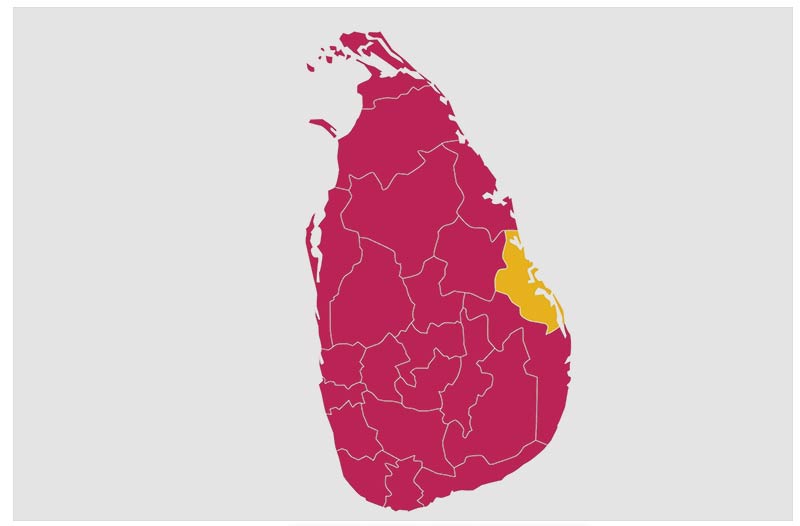
Apart from the resounding victory by the NPP, the most significant election outcome is the remarkable change in the voting pattern of the Tamils in the North, the East, and the Central province not to mention Colombo that brought defeat to most of the Tamil political stalwarts like Sithatharan, Sumanthiran, Palani Thigambaram, Mano Ganeshan et al. This is the first time that such a change has happened in a general election where usually the ethnic political parties hold sway over minority votes. It is of vital importance for everybody including Tamil politicians, the present government, international community, hegemonic powers, ultra-nationalists and separatists to understand and correctly interpret this change in the Tamil political fabric.
The decisive factor that was apparent in the pre-election period was the need for a change which manifested in a weaker form at the presidential election that brought in a new president with 42% of the national vote with the majority of Tamils voting against the NPP candidate. In less than two months the whole picture had changed and a majority of Tamils who did not vote for the NPP at the presidential election took the unprecedented step of going against their own ethnic parties and voted for the NPP. Although it appears to be a sudden change of attitude obviously such changes on such a wide scale cannot happen overnight. The need for a system change must have been slowly and steadily growing in the minds of Tamils over a period of time, like it had in the Sinhalese. The latter was obviously weary of suffering under the governments of the two major political parties since independence. The former however had hitherto been loyal to their ethnic parties who pursued divisive communal politics appealing to the ultra-nationalist sentiments of the Tamils. What was the reason for the Tamils to change in this manner?
Presidential election may have shown the Tamils that the Sinhalese had decided to bring about a radical change. This would have been the cue for them to come out into the open and demonstrate the change that has been slowly taking place in their minds. The change that appeared to have taken place in less than two months was probably catalyzed in this manner.
Tamils suffered during the thirty-year war. It is probable that the new generation of Tamils have realised the futility of war and confrontation and decided to chart a different course and deviate from the main sociopolitical stream from the time of independence though there were times of convergence and cooperation albeit of short duration. Independence and universal franchise have driven a wedge between Sinhala and Tamil leaders which was rather unfortunate for they were together in the struggle for Independence. Tamil politicians enjoyed parity of political power and suddenly they realized that their privileged position was in danger due to universal franchise which would make them a minority in the parliament. They could not reconcile with the fact that they were representatives of a minority community. What is most unfortunate is that they could not see the opportunities that were there for them to play a vital role in the development of the whole country. The mistake the Tamil leaders committed at that time was to abandon the opportunity that was available to jointly participate in the central government and contribute to the development of not only the Tamils but also the whole country and instead choose the narrow parochial path of communal politics. This blunder has continued to plague the country and even caused the birth of terrorism and a bloody war.
These historical mistakes must have dawned on the new generation of Tamils who, like the Sinhalese want a change in their lives which could come with economic development rather than ultra-nationalist dogma. Further they may have realized the fact that Tamil ultra-nationalism was flawed, unjust, parochial and does not belong in the modern world. Communal barriers have to be breached to achieve connectivity, interaction and networking which are capable of opening new vistas in the modern electronic era. All communities who have made Sri Lanka their home must unite and develop their country. The absence of this unity may have been one of the reasons for the country to lag behind in economic development and finally end up being bankrupt which would have affected all communities alike. In this regard the Tamils have taken the first step and it is now up to the other communities to suitably respond.
The government must know that the Tamils have significantly contributed to their massive victory. The government must understand what these Tamils who have rejected their own political parties and leaders want. They, too, like the Sinhalese are affected by economic mismanagement and poverty. Their problems are same as those of the Sinhalese majority. All communities are in the same boat. Tamils have realised this truth and would want urgent attention to their immediate needs. Their nutrition, health and education should receive immediate and sufficient attention. Tamils have abandoned their own parties and embraced the governing party expecting urgent redress to their burning problems.
There is a lesson for the international community as well, especially for the imperialist western powers. The latter had made use of the lack of unity among the communities to destabilise the country in pursuance of their geo-political ambitions in the Indian Ocean region. The LTTE was a tool in their hands, and after the demise of its leader, other separatists moved in to fill the vacuum. The western powers must realise the futility of such policies in view of the radical changes taking place within the mind-set of the Tamils. Tamils may no longer see the Sinhalese as their oppressors and the Sinhalese may not harbour the fear that Tamils are demanding a separate country.
It is hoped that the time may come when the Tamils realise that the whole country belongs to all communities and it is their duty to participate in the development of the whole and not just the North and parts of the East. True Tamil national leaders may emerge who would want to share power at the centre rather than at the periphery and contribute to the governing of the whole country. It is hoped that this is the end of divisive communal politics and the beginning of a new era of unity and prosperity.
N. A. de S. Amaratunga
Opinion
Revolutionary elections

By Dr Upul Wijayawardhana
No doubt, it is the ‘election like no other’ in the ‘country like no other’ that would top the league of revolutionary elections, of which there were three, just this month. Much has been written about two; the one in Sri Lanka and the second in the US but the third, in the UK, had hardly any mention in Sri Lankan media, perhaps, because it was not a general election but the election of the leader of a major political party, which I would come to later.
The NPP/JVP deserves to be congratulated on its unprecedented, massive victory and it is hoped that the new government will succeed. All ‘communal’ parties, save a few, faced humiliating defeats. The NPP won 21 out of 22 districts, the only exception being Batticaloa. Its win in Jaffna sends a clear message to the communal parties, whose leaders have been taking the people of the North for a ride to further their own interests. Do hope the new government makes good use of this golden opportunity to bring about reconciliation.
It is not only the results in the North that gives hope but also from the South. It was gratifying for me to note that my home district Matara, which is predominantly Sinhala, has elected a Tamil MP as well as a Muslim MP. Not only that, out of the 6 NPP MPs elected, the Tamil MP got the second highest and the Muslim MP got the fourth highest preferential votes. A district once well known to elect on the basis of caste and creed, a concept encouraged if not engineered by the Communist Party, has gone a full circle, thanks to another Marxist party! Perhaps, this demonstrates that voters are no longer misled by man-made differences and are achieving a degree of political maturity, which bodes well for the future. Yet another ray of hope for true reconciliation!
As far as the US election is concerned, even the bitterest critic of Donald Trump has to concede that he achieved the impossible, not once but twice. On both occasions, it was not that Trump was selected by the Republican Party but he got the party to rally round him. In fact, Trump started life as a Democrat and was not a professional politician. He achieved fame as a sharp businessman and a TV personality and decided to be president. One man’s ambition succeeding is unprecedented in US history, as far as I am aware. Though Trump won the 2016 election on the collegiate vote, he was almost 300,000 behind Hilary Clinton in the popular vote. In the 2020 election which he lost to Biden, he polled 74,223,975 whereas Biden polled 81,283,501. In the 2024 election though his popular vote increased to only 76,768,490 votes (according to the last count, as counting in US elections is very prolonged), he had a landslide winning 312 collegiate votes. Kamala Harris polled only 74,194,538, staggering 7 million less than Biden. Do these results give credence to Trump’s accusations of vote rigging in the 2020 election, I do not know. When he was portrayed as a bitter loser, no one ever imagined that Trump would have a comeback. Multitude of court cases he faced made the prospect even dimmer. His dramatic win, perhaps, adds weight to his claim that some of these cases were politically motivated.
The other important aspect of the US presidential election is that all polling organisations got their predictions totally wrong. Up to the last moment, it was too close to call they said, but as the counts proceeded, it was obvious that Trump has achieved the impossible again. However, the most important lesson for the rest of the world is that the US voting system is nothing worth emulating!
Whilst the USA is still waiting for the ‘glass ceiling’ to be broken, the UK has had three female prime ministers and recently elected another lady as the leader of a major political party. Interestingly, it is the Conservative party that seems to be progressive, the Labour Party still waiting to elect a female leader, in spite of two having acted as leader!
Kemi Badenoch, who was elected as the leader by the members of the Conservative Party early this month, is the Leader of the Opposition and may well be next Prime Minister, if the Labour government continues to mess up, as it is doing now. She may well follow Margaret Thatcher, Theresa May and, of course, the disastrous Liz Truss.
Kemi Badenoch’s election is revolutionary in two more aspects. She is the first Black leader. male or female, of a major UK political party. Further, she is the first immigrant to be a leader of a major political party. Though the US constitution stipulates that only a person born in the US could hold the highest political position there is no such stipulation in the UK. If that was so, Boris Johnson would not have been PM, as he was born to British parents in New York, while his father was studying in Columbia University!
Kemi Badenoch’s family is from Nigeria, her father being a GP and her mother a professor of physiology. Theoretically, though she spent the first sixteen years of her life in Nigeria and USA where her mother lectured, she could be classed non-immigrant as her mother travelled to London from Lagos to have her in a private hospital in Wimbledon, to return shortly after the delivery of the baby. In fact, in her first speech in parliament Badenoch declared that “to all intents and purposes, I am a first-generation immigrant”. Whatever it may be, hats-off to the UK for achieving this degree of political maturity, which is hoped we would be able to emulate ultimately.
What a revolution would it be, if a Black immigrant lady became the Prime Minister of the UK!
Opinion
Key to resilient plantation agriculture in Sri Lanka

Sustainable soil health:
by Lalin I De Silva
With the escalating impacts of climate change, Sri Lanka’s plantation sector—spanning tea, rubber, coconut, spices, and oil palm—faces critical challenges in maintaining soil health. As fluctuating weather patterns affect nutrient availability and increase erosion, achieving sustainable crop productivity requires rethinking soil management. This article explores why a shift to adaptive soil practices is essential, discussing the role of nutrient management, organic matter enhancement, and precision techniques that can support a climate-resilient future for Sri Lankan planters.
Understanding Soil Health and Climate Adaptation
In Sri Lanka, where agriculture is deeply interwoven with economic stability and cultural heritage, soil is a foundational asset. Healthy soil not only sustains high yields but also contributes to carbon sequestration and water retention. However, climate change introduces frequent rainfall variability, which accelerates nutrient leaching, affects soil structure, and increases erosion risk—especially in sloped plantation areas common in tea production. Understanding the specific nutrient needs of each crop and adapting soil practices accordingly can help mitigate these adverse impacts.
Key Soil Nutrients and Their Importance
The macronutrients nitrogen (N), phosphorus (P), and potassium (K) play vital roles in crop health, but their optimal levels vary between plantation crops:
Nitrogen (N): Essential for foliage growth, nitrogen requirements are particularly high for tea, which thrives with approximately 20-25 mg/kg. For other crops like coconut and oil palm, nitrogen supports broader canopy development, which is important for resilience against drought.
Phosphorus (P): Phosphorus supports root development, critical in early plant growth and essential for strong, resilient crops. A good level for most plantation soils falls between 10-30 mg/kg, depending on soil type and crop. Coconut, which requires strong roots for water absorption, greatly benefits from adequate phosphorus levels.
Potassium (K): Often called the “quality nutrient,” potassium improves crop resilience and quality. For example, tea thrives with potassium levels of 120-150 mg/kg, while rubber and coconut need slightly higher levels to promote nutrient distribution across the plant structure, supporting resilience during dry spells.
Tailoring Soil Practices for Plantation Resilience
Plantations must adopt region-specific soil management practices to meet crop needs while minimizing environmental impact. Here are some effective techniques for sustainable soil management:
Cover Crops and Erosion Control: By planting cover crops like legumes, farmers can reduce erosion while adding nitrogen to the soil naturally. Cover crops shield soil from heavy rain, reducing topsoil loss and adding organic matter as they decompose, which improves nutrient availability and soil structure over time.
Organic Matter Management: Increasing organic matter in the soil improves moisture retention and overall fertility. Applying compost, mulches, or green manure boosts organic carbon levels, which is particularly beneficial in tropical climates with high decomposition rates. Mulching, for instance, helps regulate soil temperature, retain moisture, and add essential nutrients as it decomposes.
Biochar Application: Biochar, a type of charcoal added to the soil, improves water retention, nutrient availability, and microbial health. In tea estates or high-rainfall areas, biochar acts as a stabilizer, helping the soil retain nutrients that might otherwise be washed away. Its porous structure holds onto moisture, benefiting root health during dry periods.
Precision Fertilisation
Implementing a targeted fertilisation approach ensures the soil receives just the nutrients it needs. Slow-release fertilisers and digital soil sensors reduce nutrient leaching, prevent over-application, and support a balanced nutrient profile. For example, the use of a portable spectrophotometer can measure soil nutrient levels, guiding adjustments that enhance productivity and reduce waste.
Carbon Sequestration Techniques: Practices like agroforestry and low-tillage farming promote carbon storage in the soil, contributing to climate resilience and soil fertility. By integrating trees with crops, agroforestry not only sequesters carbon but also protects against soil erosion and provides shade, which reduces crop stress during high temperatures.
Implementing Soil Testing and Monitoring
For Sri Lankan planters, regular soil testing and monitoring are essential to maintain optimal soil health. Digital tools such as portable pH meters, EC (Electrical Conductivity) meters, and NPK soil test kits provide valuable data on soil composition and health. By regularly testing for pH, organic carbon, and nutrient levels, planters can make informed decisions on crop nutrition and soil amendments. Mapping plantation areas using handheld GPS devices also aids in precision agriculture, allowing farmers to apply fertilizers and water only where necessary, minimizing environmental impact.
Promoting Soil Biodiversity and Microbial Health
Healthy soils host a diverse range of micro organisms, essential for nutrient cycling and disease suppression. Adopting organic inputs and minimising chemical usage help sustain beneficial bacteria, fungi, and earthworms, all of which improve soil structure and fertility. Mycorrhizal fungi, for instance, form symbiotic relationships with plant roots, enhancing phosphorus uptake and strengthening plants against drought stress. Encouraging these organisms through organic farming practices is a vital component of sustainable soil health.
Way Forward: Embracing a Soil-Centric Approach in Sri Lanka
Sri Lankan planters face unique challenges from climate change, but by adopting a soil-centric approach, they can maintain crop yields and enhance environmental resilience. Partnerships with agronomists and value chain consultants can assist in identifying effective practices suited to local soil types and climate conditions. Additionally, government support for sustainable farming incentives and education initiatives would empower farmers to adopt these practices.
Implementing soil-friendly practices at scale requires both knowledge-sharing and community cooperation. Initiatives like training programes in precision agriculture, digital tools for soil monitoring, and organic fertiliser subsidies could be valuable. By aligning these practices with Sri Lanka’s climate resilience goals, the plantation sector can enhance productivity sustainably.
Maintaining healthy soils is not only a matter of crop productivity; it is a defence strategy against the unpredictable impacts of climate change. Through sustainable soil management practices—such as increasing organic matter, precise nutrient application, and encouraging soil biodiversity—Sri Lanka’s planters can create resilient agricultural systems that support long-term economic stability. Embracing these practices will enable the plantation sector to flourish sustainably, preserving the environment while continuing to contribute to the nation’s economy. With a soil-centric approach, the future of Sri Lankan agriculture holds promise for both productivity and resilience in the face of climate change.
Lalin I De Silva is a value chain journalist of www.vivonta.lk, Senior Planter, Agricultural Advisor / Consultant, Secretary General of Ceylon Planters Society, Editor of Ceylon Planters Society Bulletin and freelance journalist.
-
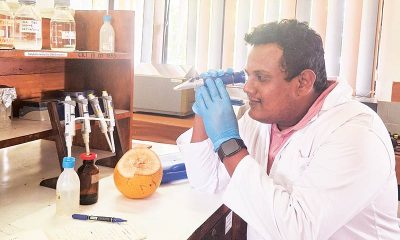
 Life style5 days ago
Life style5 days agoKing of coconuts heads for a golden future
-
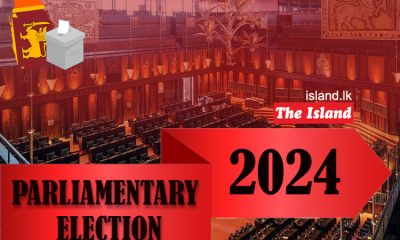
 Latest News7 days ago
Latest News7 days agoColombo district preferential votes announced
-
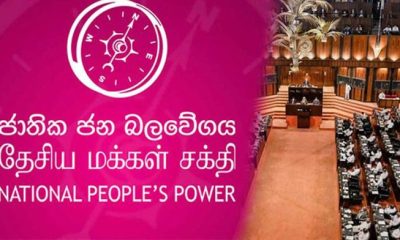
 News4 days ago
News4 days agoNPP appoints two defeated candidates as NL MPs
-
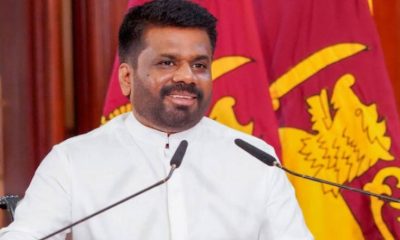
 News6 days ago
News6 days agoPresident warns his party: “We will fail if we view power as an entitlement to do as we please”
-
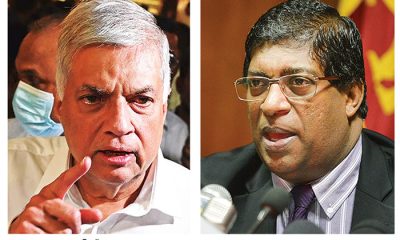
 News3 days ago
News3 days ago‘Gas Cylinder’ explodes; Ranil flays NDF Secy. for submitting Ravi’s name
-
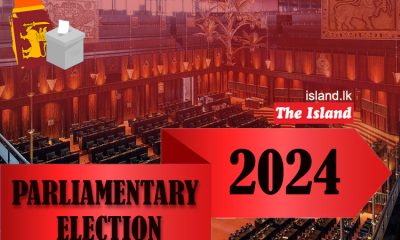
 Latest News7 days ago
Latest News7 days agoGampaha district: NPP 16, SJB 3
-

 Midweek Review2 days ago
Midweek Review2 days ago‘Ramayanizing’ Sri Lanka by Courtesy of SriLankan Airlines
-
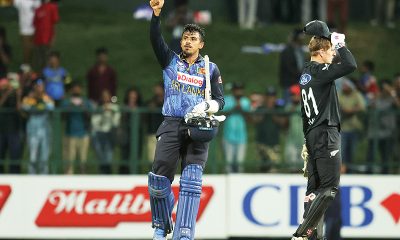
 Sports3 days ago
Sports3 days agoMaking batting compulsory for bowlers has worked – Theekshana











